
AIthough US President Richard Nixon and his cabinet supported Israeli PM Golda Meir's requests for more aid, by 8 October the Israeli government was begging for a torrent of armaments to replenish its overstretched ground forces. In the Sinai alone US intelligence estimated the IDF lost 432 tanks after just three days of fighting (the Soviets were not far off, estimating 500 Israeli tanks lost) and the aerial battles were taking a toll as well. Pre-war Israeli air power counted 358 modern fighter jets and as many as one-third were shot down by the enemy in the duration of the war. The US decision to send weapons and supplies for Israel was made on 9 October and organised by the White House, the State Department and the Department of Defense, with Secretary of State Henry Kissinger acting as liaison between Tel Aviv and the Oval Office. Kissinger remained divisive: the US foreign policy establishment saw him as too pro-Israel but public opinion in the Jewish state loathed him as an appeaser. Regardless, the first flights of C-5 Galaxy transports landed in Tel Aviv's Lod International Airport on 14 October with much needed 4in (105mm) howitzer ammunition. Over the next 13 days the US Air Force's Military Airlift Command (MAC) were off-loading tanks, howitzers, and even additional Phantom and Skyhawk jets. The 6,450mile (10,380km) distance was further complicated by the reluctance of NATO allies to share their own supplies. What became Operation Nickel Grass was a unilateral US effort.
This story is from the Issue 118 edition of History of War.
Start your 7-day Magzter GOLD free trial to access thousands of curated premium stories, and 9,000+ magazines and newspapers.
Already a subscriber ? Sign In
This story is from the Issue 118 edition of History of War.
Start your 7-day Magzter GOLD free trial to access thousands of curated premium stories, and 9,000+ magazines and newspapers.
Already a subscriber? Sign In
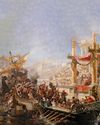
NAUMACHIA TRUTH BEHIND ROME'S GLADIATOR SEA BATTLES
In their quest for evermore novel and bloody entertainment, the Romans staged enormous naval fights on artificial lakes
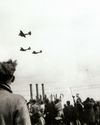
OPERATION MANNA
In late April 1945, millions of Dutch civilians were starving as Nazi retribution for the failed Operation Market Garden cut off supplies. eet as In response, Allied bombers launched a risky mission to air-drop food
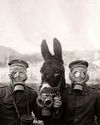
GASSING HITLER
Just a month before the end of WWI, the future Fuhrer was blinded by a British shell and invalided away from the frontline. Over a century later, has the artillery brigade that launched the fateful attack finally been identified?
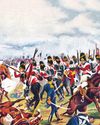
SALAMANCA
After years of largely defensive campaigning, Lieutenant General Arthur Wellesley went on the offensive against a French invasion of Andalusia
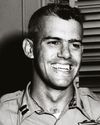
HUMBERT 'ROCKY'VERSACE
Early in the Vietnam War, a dedicated US Special Forces officer defied his merciless Viet Cong captors and inspired his fellow POWs to survive
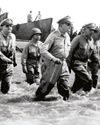
LEYTE 1944 SINKING THE RISING SUN
One of the more difficult island campaigns in WWII's Pacific Theatre saw a brutal months-long fight that exhausted Japan’s military strength
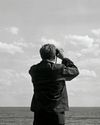
MAD DAWN
How technology transformed strategic thinking and military doctrine from the Cold War to the current day
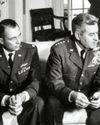
BRUSHES WITH ARMAGEDDON
Humanity came close to self-annihilation with the Cuban Missile Crisis, Broken Arrows’ and other nuclear near misses
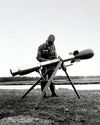
THE DEADLY RACE
How the road to peace led to an arms contest between the USA and USSR, with prototypes, proliferation and the world’s biggest bomb
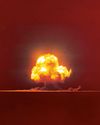
THE MANHATTAN PROJECT
Einstein, Oppenheimer and the race to beat Hitler to the bomb. How a science project in the desert helped win a war